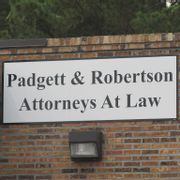How to Know If You Should File for Bankruptcy

From unmanageable credit card debt and medical bills to foreclosure and wage garnishment, the burden of financial challenges can quickly become overwhelming. But, fortunately, bankruptcy offers an accessible path to economic stability. If you're considering filing for bankruptcy, you may be wondering what time is the right time to file. Below, find an in-depth answer to this question, exploring the various types of bankruptcy available, signs you should start the filing process, and what qualifications must be met.
What Are Some Types of Bankruptcy?
There are two types of bankruptcy available to consumers. Chapter 7 eliminates most unsecured debts and essentially gives you a clean slate from which to start anew; examples of unsecured debts include credit cards, medical bills, and personal loans.
Chapter 13 restructures existing debts into a repayment plan that is paid off over three to five years. With Chapter 13, you can sometimes negotiate with creditors to settle debts for less than what is owed, but Chapter 7 may be the better option if you have significant unsecured debt and are seeking fast relief.
What Are Signs That You Should File?
 An inability to cover basic, essential bills each month can be one of the biggest signs that you should consider bankruptcy. If your income cannot fully cover things like food, clothing, and shelter, and your only able to make minimum payments or less on credit cards, bankruptcy is a solution worth exploring.
An inability to cover basic, essential bills each month can be one of the biggest signs that you should consider bankruptcy. If your income cannot fully cover things like food, clothing, and shelter, and your only able to make minimum payments or less on credit cards, bankruptcy is a solution worth exploring.
Collection agencies can become aggressive in their pursuit of past-due debts. If your life has been upended by incessant phone calls, letters, or even lawsuits seeking payment for credit card debt, medical bills, and other balances, you'll find relief knowing that bankruptcy laws require all debt collection action to stop as soon as a person files.
Foreclosure and wage garnishment are two creditor actions that can take what little you have. Bankruptcy puts an automatic stay on these types of procedures.
What Are the Filing Qualifications?
A filer must pass a means test to file for Chapter 7 bankruptcy. For Chapter 13, there is no means test, but your unsecured debts must not exceed $419,275.
To see if bankruptcy is right for you, contact Padgett & Robertson, Attorneys at Law. Since 1978, they have been representing clients throughout Mobile and all of Southern Alabama. They offer debt solutions for credit card and medical bills, foreclosures, wage garnishments, property repossessions, and other issues. Call (251) 342-0264 or visit them online to schedule a consultation.
No representation is made that the quality of legal services to be performed is greater than the quality of legal services performed by other lawyers. We are a debt relief agency. We help people file for bankruptcy relief under the Bankruptcy Code.
About the Business
Have a question? Ask the experts!
Send your question

